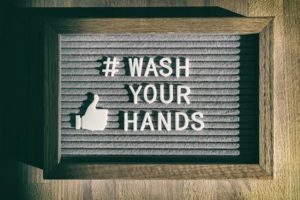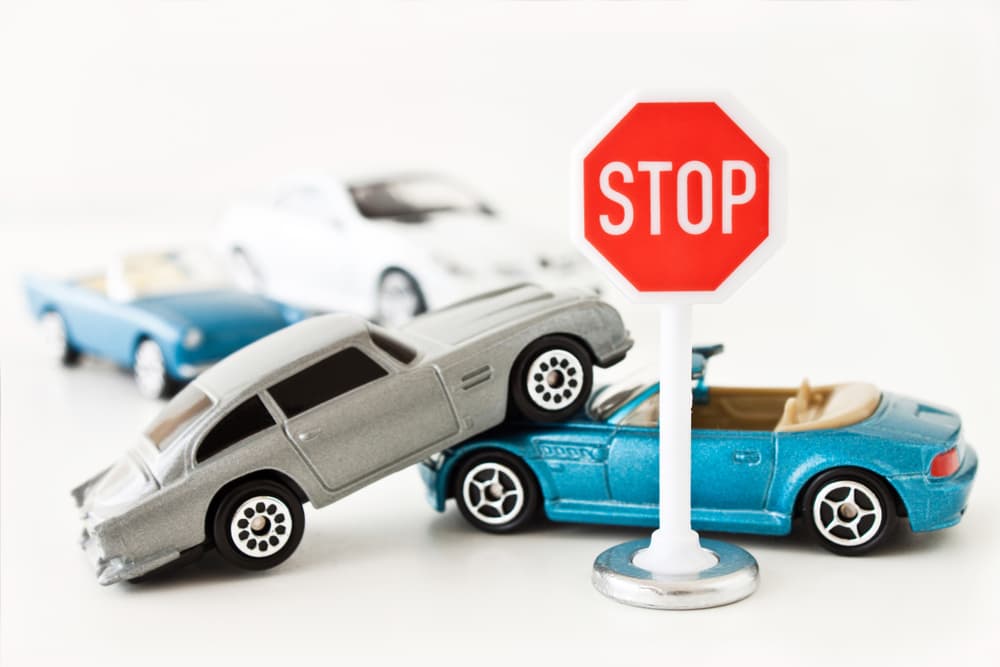Tips for Staying Healthy When in Public Places
Each year, millions of people suffer from colds, flu, or other viruses. Some viruses can spread easily from one person to another. Now more than ever, it is important to take care of yourself and your immune system. Try these tips for protecting your good health, as well as the health of others.
Get a Flu Shot
There are many viruses each year, and each one can affect people differently. The best way to prevent seasonal flu is to get
vaccinated annually—and while you’re at it, make sure your other vaccinations (including chicken pox, shingles, and measels) are up to date. Vaccination is especially important for those with chronic health conditions. Other
benefits include reducing the severity of illness as well as the likelihood of
hospitalizations and flu-related death in children.
Wash Your Hands

Just the simple act of washing your hands often and thoroughly will help protect you from germs. More than any other part of your body, your hands come into contact with your surroundings. Whether you are at your workplace, a store, a bus, or any public place, when you touch a surface, you risk picking up germs. According to the CDC, the flu
virus can live on hard surfaces for up to eight hours.
Wash your hands several times a day. In general, wash your hands whenever they are visibly dirty, or after you have come into contact with any questionable surfaces. Make it part of your daily routine. For example, wash your hands before preparing or eating food, caring for someone who is sick, and inserting or removing contact lenses. Also, don’t forget to wash your hands after using the bathroom, sneezing, coughing, or blowing your nose or caring for someone who is sick. Also, wash your hands after handling food (including pet food) or garbage, or touching an animal or animal waste.
The
Mayo Clinic recommends washing your hands with soap and water. Regular soap is just as effective as over-the-counter antibacterial soaps to kill germs.
For thorough, effective hand washing, experts recommend:
- Use clean, running water.
- Apply soap and scrub your hands thoroughly for 20 seconds or more. Make sure you rub all parts of your hands, including between your fingers, under your fingernails, the backs of your hands and your wrists.
- Rinse completely, and air dry your hands or use a clean towel.
- Use alcohol-based sanitizer
An
alcohol-based sanitizer is also a sensible way to kill germs and protect against illness, but only if soap and water aren’t readily available. For maximum effectiveness, the Food and Drug Administration (FDA) recommends using a sanitizer containing 70 percent to 95 percent ethanol or isopropanol.
Avoid Touching Your Eyes, Mouth, and Nose
Even if you wash your hands regularly, it is impossible to keep them completely clean all the time. You can’t see them, but germs are everywhere. If you touch something that is contaminated with germs and then touch your eyes, nose, or mouth, you risk infection. Unfortunately, touching your face is a tough habit to break. Those who have habits such as nail-biting risk ingesting germs.
When wearing a mask, be sure to follow the
recommended guidelines for safe and sanitary use.
Keep Your Home, Workspace, and Car Clean and Sanitized
You probably feel that your home, office, or car is very clean. However, we are all touching surfaces all the time. After you have been out in public, you may have gotten in your car, driven home, and along the way, touched your keys, cell phone, and other areas in your home before you got around to washing your hands. Doing so just invited all sorts of germs into your life.
Countertops, whether they are in a store or your own kitchen, can be teeming with germs. If you make yourself a snack on a contaminated surface, you will ingest all those germs. Even kitchen sponges harbor germs. They should be disinfected or changed regularly.
Avoid Touching Common Surfaces in Public Places
Common public surfaces/places that have the most germs include:
- ATMs, PIN pads or other electronic payment terminals
- Gas pumps
- Shopping carts
- Pens used to sign at a store checkout or a restaurant
- Self-checkout terminals at the grocery store
- Doorknobs and handles
- Handles and other surfaces on public transportation
Use sanitizer or disinfectant wipes to clean public surfaces before you touch them and then use hand sanitizer afterward. You can also bring your own pen to use at the register. As much as possible, avoid putting your hands on stair rails, doorknobs, and faucets. Especially in busy public places, people touch these surfaces constantly, and they probably do not get sanitized enough to keep them free of germs. Instead, use the back of your hand, arms, and elbows, use a disposable paper product, or use the outside of an article of clothing. Also, do not share items such as cell phones.
Avoid Crowds
Do your best to avoid unnecessary crowds and travel. You can’t always tell if someone is sick, because people may be infected with the flu or cold even before symptoms appear. Therefore, stay away from crowded spaces if you can. If you find yourself in a crowd, try not to talk too close to people. If someone near you is sneezing or coughing, turn away and cover your mouth and nose. Breath out slowly so that you don’t inhale the contaminated air and move at least 6 to 10 feet away from that person.
Try to stay away from busy malls or performance venues. We all love to go to a movie theater or live performance, but in those situations, many people are sitting close together, and if one person has a virus, germs can spread easily and quickly.
It is easy to see why daycare or childcare centers are a frequent source of colds or flu. In these settings, young children often use their hands to touch their faces or wipe their noses. Then they handle their toys, touch every surface within reach, and touch other children, who, in turn, do the same. The flu virus and other germs can easily spread among them, especially as their immune systems are still building up. According to the CDC, flu can be especially dangerous for children, especially those aged five or younger, because they are at a higher risk for complications.
Avoid Close Contact
Avoid close contact with people who are sick. When you are sick, keep your distance from others to protect them from getting sick too. To protect others, cover your mouth and nose with a mask or tissue and, if possible, stay at home if you are sick. If you are caring for someone who has a contagious illness, follow all basic sanitation procedures. Try to stay in a separate area, away from the sick-room, and avoid using the same bathroom. Be extra cautious about sharing household items. Don’t share unwashed drinking glasses, eating utensils, or dishes. Also, avoid sharing linens, such as bedding, towels, or kitchen linens. After a sick person uses household items, always wash and sanitize them carefully.
Practice Other Good Health Habits
Most of the secrets to good health are just common sense. Keep your immune system in good shape by eating nutritious food, drinking plenty of liquids, getting enough sleep, being physically active, and controlling your stress level. Be careful and be well.
David Abels
Partner
David Abels has carved a niche for himself in the personal injury law sector, dedicating a substantial part of his career since 1997 to representing victims of various accidents. With a law practice that spans over two decades, his expertise has been consistently recognized within the legal community.
Author's Bio
 Just the simple act of washing your hands often and thoroughly will help protect you from germs. More than any other part of your body, your hands come into contact with your surroundings. Whether you are at your workplace, a store, a bus, or any public place, when you touch a surface, you risk picking up germs. According to the CDC, the flu virus can live on hard surfaces for up to eight hours.
Wash your hands several times a day. In general, wash your hands whenever they are visibly dirty, or after you have come into contact with any questionable surfaces. Make it part of your daily routine. For example, wash your hands before preparing or eating food, caring for someone who is sick, and inserting or removing contact lenses. Also, don’t forget to wash your hands after using the bathroom, sneezing, coughing, or blowing your nose or caring for someone who is sick. Also, wash your hands after handling food (including pet food) or garbage, or touching an animal or animal waste.
The Mayo Clinic recommends washing your hands with soap and water. Regular soap is just as effective as over-the-counter antibacterial soaps to kill germs.
For thorough, effective hand washing, experts recommend:
Just the simple act of washing your hands often and thoroughly will help protect you from germs. More than any other part of your body, your hands come into contact with your surroundings. Whether you are at your workplace, a store, a bus, or any public place, when you touch a surface, you risk picking up germs. According to the CDC, the flu virus can live on hard surfaces for up to eight hours.
Wash your hands several times a day. In general, wash your hands whenever they are visibly dirty, or after you have come into contact with any questionable surfaces. Make it part of your daily routine. For example, wash your hands before preparing or eating food, caring for someone who is sick, and inserting or removing contact lenses. Also, don’t forget to wash your hands after using the bathroom, sneezing, coughing, or blowing your nose or caring for someone who is sick. Also, wash your hands after handling food (including pet food) or garbage, or touching an animal or animal waste.
The Mayo Clinic recommends washing your hands with soap and water. Regular soap is just as effective as over-the-counter antibacterial soaps to kill germs.
For thorough, effective hand washing, experts recommend:



